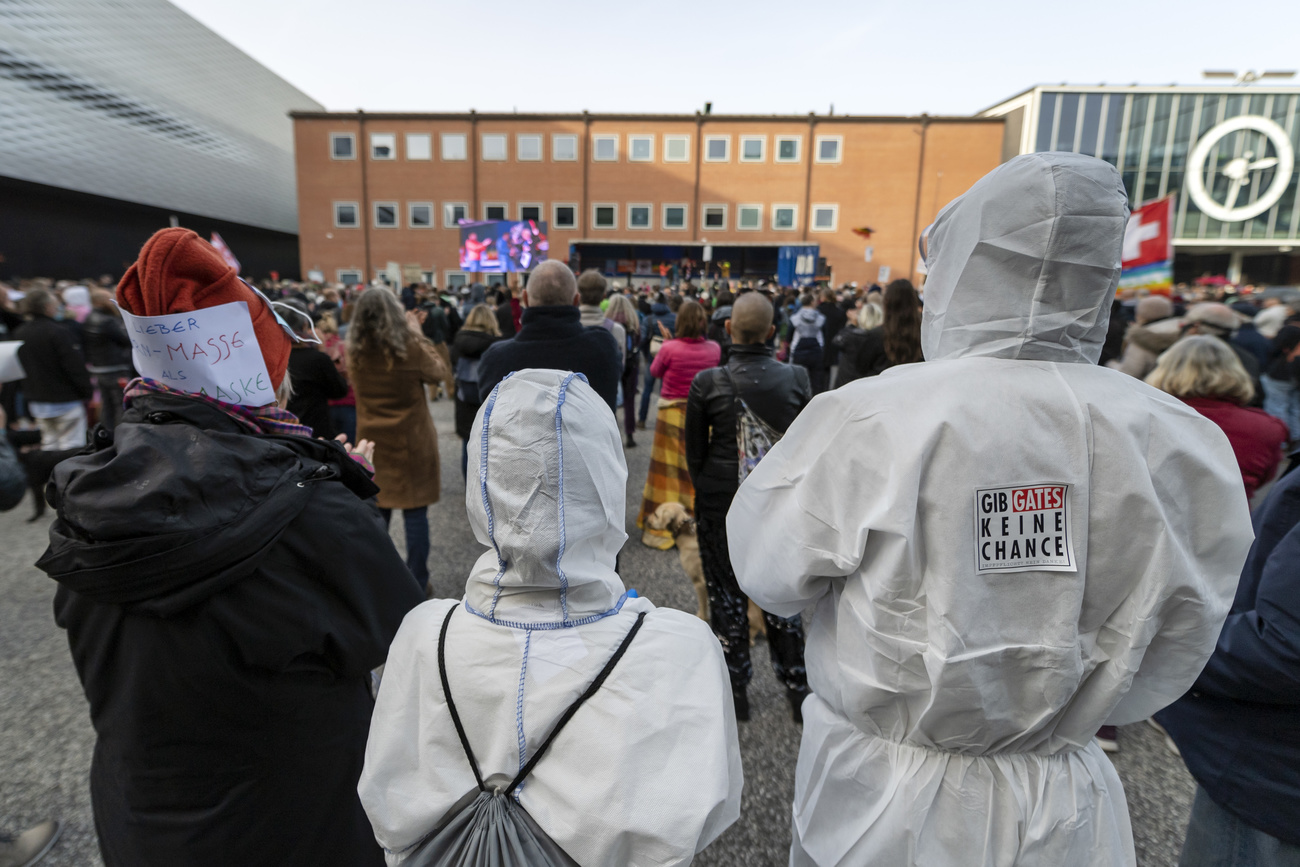
Third of Swiss prone to believe conspiracy theories

A new study shows that about a third of Swiss have a mindset that makes them more likely to believe conspiracy theories. Experts warn that this increases in times of uncertainty such as Covid-19.
On Saturday, several hundred people gathered in Basel to protest coronavirus measures. Many weren’t wearing masks in defiance of government laws mandating them. According to a SonntagsZeitungreporterExternal link on the scene, many were chanting slogans or holding signs talking about how masks cause harm or are useless.
While many protestors simply resist government interference, some simply believe the coronavirus is a lie invented by the media or government.
According to a studyExternal link published in September, about a third of Swiss are prone to such theories. A research team led by Dirk Baier, head of the Institute for Delinquency and Crime Prevention at the Zurich University of Applied Sciences (ZHAW), studied the links between the likelihood of believing in conspiracy theories and violent extremism.
The team surveyed over 9,000 young people and 2,000 adults in 2019 (before the pandemic) for answers to questions such as whether there are secret organizations that have a great influence on political decisions or whether politicians are puppets for more powerful forces.
The study found that a total of 31.4 % of adolescents and 35.9% of adults have a marked conspiracy mentality, making them more prone to believe conspiracy theories. The research also finds that distrust in institutions and feelings of powerlessness and insecurity increase this mentality.
“If one looks for orientation in uncertain times, the simple – conspiracy theory – answers are welcomed,” said Baier in an interviewExternal link in SonntagsZeitung.
About half of the study participants had no interest to engage politically and believe that it is pointless to do so. Baier found that about half of the study participants agree that everything has become more uncertain and one must be prepared for everything.

In compliance with the JTI standards
More: SWI swissinfo.ch certified by the Journalism Trust Initiative





























You can find an overview of ongoing debates with our journalists here . Please join us!
If you want to start a conversation about a topic raised in this article or want to report factual errors, email us at english@swissinfo.ch.